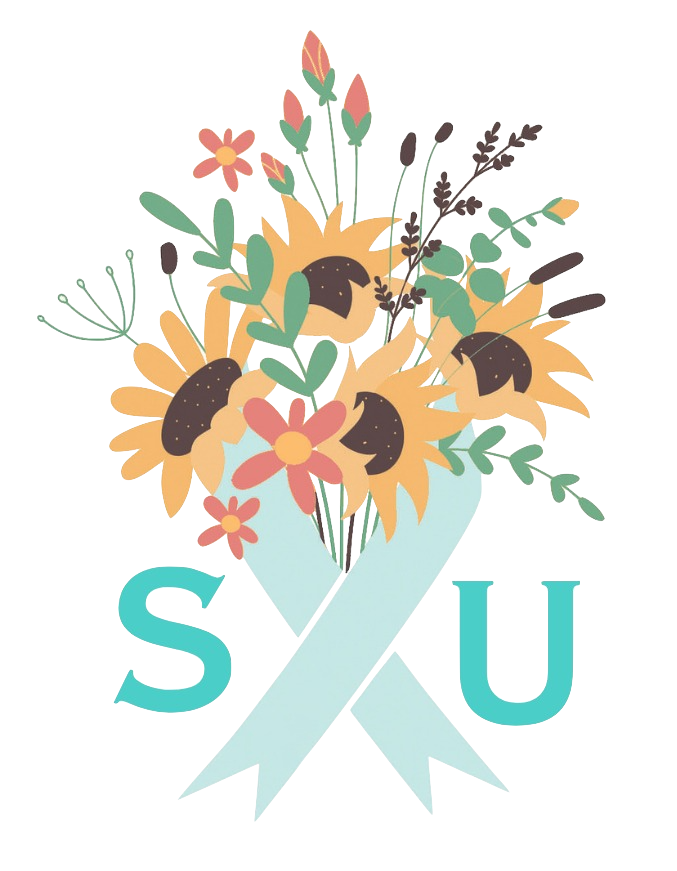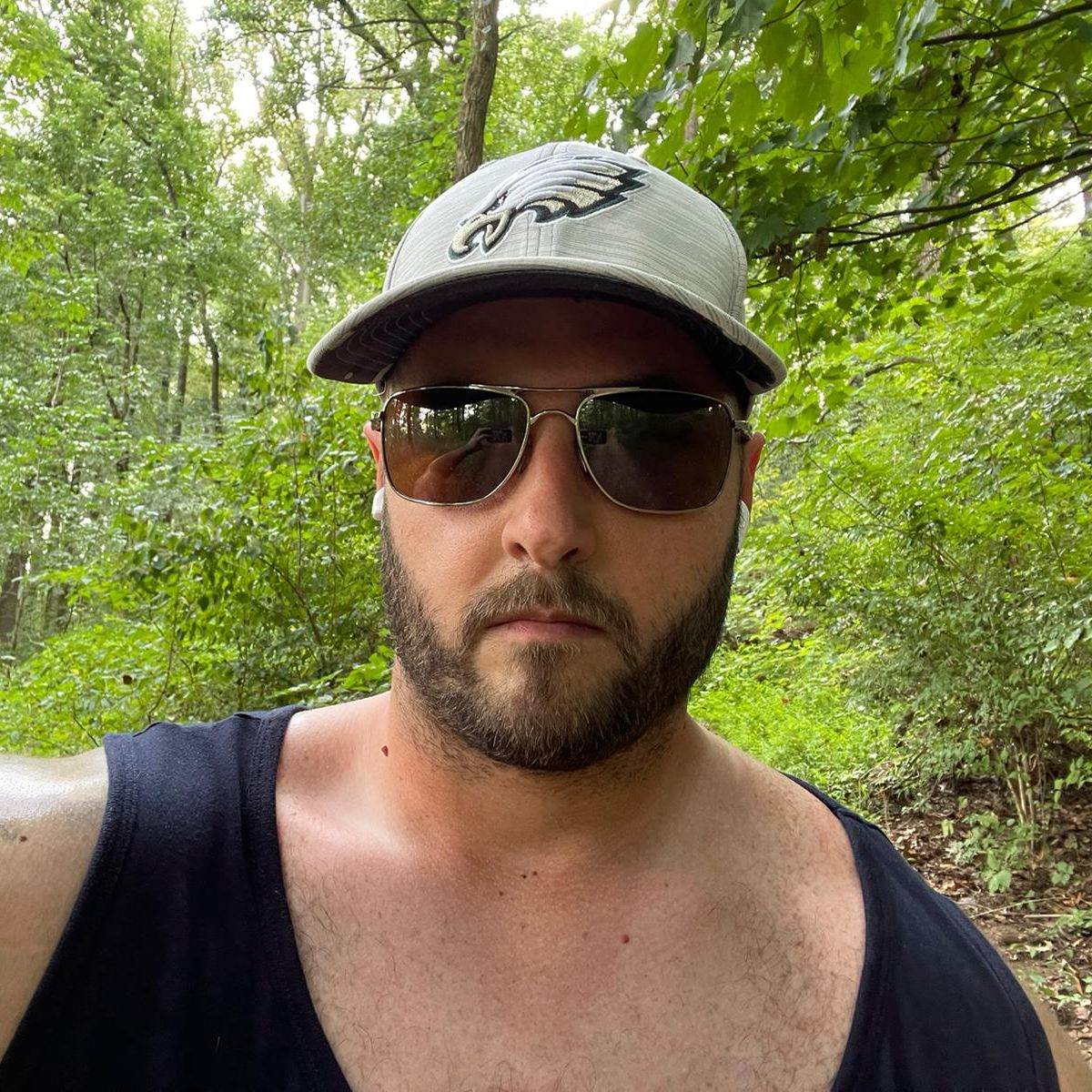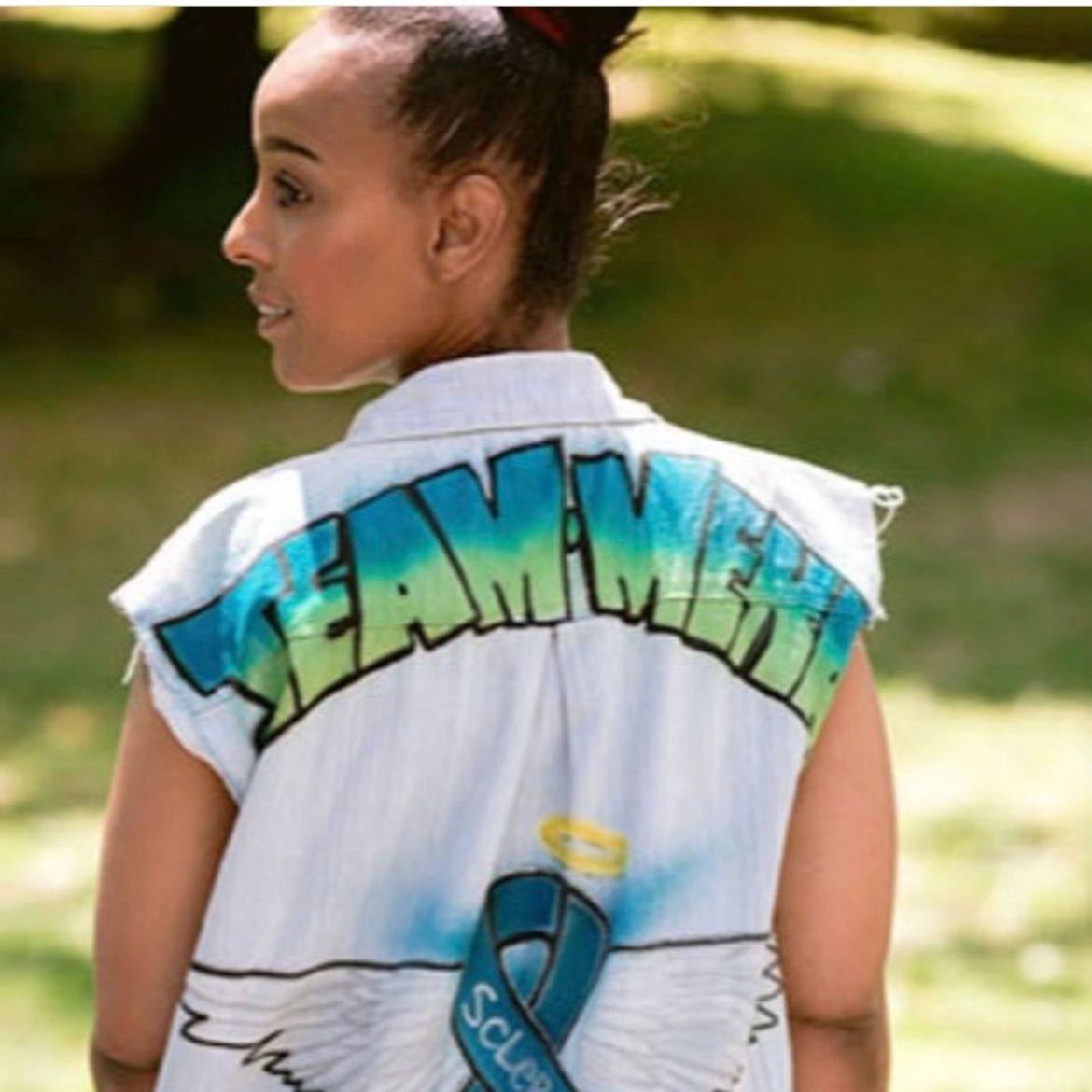New York City, New York (United States)
EVAMARIE GILBES-COLE
Scleroderma Stories Issue 5

Please introduce yourself
My name is Evamarie Gilbes-Cole. I am 53 years old, and I live in New York City with my husband Sean and my son Justin. I’m very close with my immediate family. My family is scattered across the country and internationally, so those that are near are a huge support system for me. I have a lot of forever friends, my “ride and dies,” who have been with me along the journey.
My fellow scleroderma warriors have also become a part of my family! I have had scleroderma for 16 years. I’m a patient advocate and a support group leader, and I just love helping other people.
What led to your scleroderma diagnosis?
I was diagnosed in August of 2008, but my symptoms started in the summer of 2007. I was originally misdiagnosed with lupus, and the medication prescribed was not helping.
The funny part is that my actual diagnosis came from an attorney that I worked with. Of course, to protect your job, you file paperwork with Human Resources under FMLA (Family Medical Leave Act). You want to make sure that you can keep your job while fighting an illness. This attorney came by my desk, and he just swiftly said, “You don’t have lupus. You have CREST Syndrome.” I said, “Crest! Crest is a toothpaste. What are you talking about?” I went online, I researched it a little bit and said, “Oh, my! I don’t have lupus, I have scleroderma.”
I went into his office and asked, “How did you know that?” And he said, “By how your skin looks and how you have all these white patches all over your arms and your legs.” He said that his wife had the disease, and I said, “Wow! One in like 300,000 people have this. Thank you! I’m going to call up my rheumatologist.”

What symptoms have you developed since your diagnosis?
My doctor originally gave me nine years to live. But this August will be about 16 years living with scleroderma. So I’m grateful to that one person, the attorney, to whom I say, “thank you – you saved my life.” I occasionally check in on him and his wife to see how she is doing. It still blows my mind, I knew someone who knew someone with this rare autoimmune disease and was able to help me get the proper care and stabilize the disease and get me out of those flares I was constantly in. I’ve been treated by a scleroderma specialist since. I have excellent communication with him. He goes out of his way, whether by phone, email, or in person. Also, I don’t have a lot of hospital stays anymore because I have someone to go to who understands the intricacy of the disease. I have diffuse systemic scleroderma. Over the last 13-14 years, I also was diagnosed with Raynaud’s. I have a lot of GI issues.
What challenges do your symptoms cause?
Definitely, the number one difficult symptom is the hands. You need your hands to do everything. Like I said, my hands are severely curled and have lots of calcinosis and ulcers. They’re constantly infected and I’m constantly going to wound care. I’ve had some severe infections through the years.
It’s frustrating because just doing the daily basics of life like getting dressed is difficult. I don’t wear many things with buttons anymore. I wear a lot of yoga pants or stretchy stuff because even pulling a zipper sometimes cuts my skin since it’s so thin and so damaged. I have sensitivity to certain fabrics; they flare me up, make me itchy, and hurt my skin.
What treatments have you tried or found helpful?
For the first year or so, I was on some medication that I can’t remember the name of, but I want to say for half my disease, I was on methotrexate for the scleroderma. Then, I started to realize that the methotrexate wasn’t working. So, I started to take Rituxan infusions which actually were a game changer. They kind of halted the curling of my fingers, the calcinosis decreased, and my ulcers went away. Rituxan was the first treatment that showed a huge change in the scleroderma effects.
However, it didn’t last long. About two and a half years into infusions, I went into anaphylactic shock, and I had to stop taking the medication. It was very scary. I don’t remember part of it. They had to EpiPen me, and they rushed me to the hospital. It was actually the first time I went to an infusion by myself that the anaphylactic shock happened. They had to halt the infusions completely.
Right after that, my health declined again, and I was put on CellCept. I’ve been on it since then. I will say the CellCept softens my skin. I have a lot more skin to pull now, but the ulcers and the calcinosis came back. So, we know that biologics help me, but there aren’t too many biologics that are approved for use in scleroderma treatment.

How do scleroderma-related expenses impact your life?
It’s an excessive hardship and strain. You have to remember I was the money maker in my family, and I had the better insurance. I can’t just go out and do something in my life because I always have to budget whatever plans I have. I always have to keep some extra money for emergencies.
How has scleroderma impacted your career?
Scleroderma has had a huge impact on my life. I lost my career. I was a paralegal for 26 years prior to my diagnosis. I worked with very powerful attorneys in large international law firms in Manhattan. I used to have to travel a lot, but I couldn’t travel anymore because I didn’t have the energy. My energy level was so low and my fatigue so high. You could only reduce your hours so much before it impacts the work quality. I will say that the firms I worked at when I was ill were very accommodating. They gave me whatever I needed to try to do my job. But when I couldn’t work at least 3 days a week, I knew I needed to step down. On the other hand, it also gave me the opportunity to be a housewife and there for my young son. I found a new purpose and passion in my life with Scouting and Parent Associations for my son.
How has scleroderma affected your relationships with friends and family?
The majority of my family is very supportive. Unfortunately, I don’t have a lot of family near me, but those that are near me always accepted me. Actually, when they heard I was sick, they all jumped on the bandwagon and started to research what scleroderma was and how it was going to affect me. Sixteen years ago, they gave me a life expectancy, and for many years my mother was worried that I would go to sleep one day and not wake up. It affected my mom deeply. She thought she was losing her child. But my family was super supportive. They were always around if I needed help to go food shopping or whatever – they’d step to the plate.
Friend relationships didn’t go all so well at the beginning. Yes, there was always support from my closest friends, but I truly believe that if you don’t have a family member struggling with this disease, you don’t really get it. I just think that some of those people gave up on me, and they didn’t want to be part of my journey. Maybe they couldn’t accept it on their own, or maybe they couldn’t handle what they saw me going through. But whatever the reason is, there are no ill grudges. Instead of having hundreds of acquaintances, I have an extraordinary small group of “forever” friends that I am blessed with. These “forever” friends have become my “ride and dies.” I could just message them, and one of them will show up to the plate to take me to doctor appointments, pick up medicine, or just hold me while I cry on a bad day.
In life, they say that you have people in your life for a reason or a season or a lifetime. I’ve been blessed to have all three. I just go with the flow. If you’re willing to be there for me, I accept you with open arms, and if you can’t handle it, I’m okay with that too. But if there’s a way to change your mind, listen to me and let me help you understand. I am grateful for those who want to be educated and learn.

What is it like to be a mother with scleroderma?
My son was very young when I was diagnosed. He was only five years old. Believe it or not, my son is more rare than I am. He was born with birth deformities and some other rare diseases. I’ve always wanted a child, and prior to having my son, I had about eight miscarriages. And then after my son, I had two miscarriages. I was told that I could get pregnant easily, but maintaining the pregnancy was tough. In later years, I was told by a gynecologist that it’s possible that the scleroderma gene caused these issues. Of course, no research on that statement, but that’s what I was told.
So when my son was young, I wasn’t able to run after him like you need to with toddlers. It was not easy. I wasn’t able to teach my son how to ride a bike or to rollerblade. My temper was very short with him constantly because the pain was too much. I look back and sometimes think I was a bad mom because I couldn’t do what a healthy mom could do with their child.
I want to share a little story about my son. I don’t think my son realized I was sick because we always hear, “you don’t really look sick,” – if you look at my face, I don’t look sick. But in this story, he was about nine years old, and I was on my journey to finally accepting that I would have to be put on disability.
I picked him up from school one day and he grabbed my hand to cross the street. I was having a bad day and said, “Baby, hold my wrist.” I used to tell him that because grabbing my wrist didn’t hurt. He looked up at me and asked, “Mommy, are your hands ever going to be normal? Are they going to fix themselves? Or are they like this for the rest of your life?”
I think at 9 years old, he finally realized that his momma was sick. It broke my heart. I started to cry a little bit, and I said, “It’s not the end of the world, baby. Your mom’s just going to have special hands.” I remember him coming home and saying to his dad, “You know mommy’s hands are going to be like that forever?”
But my son is extremely compassionate. In my worst years, before I got the proper medicinal treatment, my son was a huge source of support. He had to grow up a lot earlier than needed. He helped me get dressed. Sometimes, he would have to help feed me and so forth. He was my main caretaker whenever home because my husband had to work. And for my husband, it took him a while. It changed his personality. It’s hard to hear that your wife is sick, but now he gets it. Both of them are by my side on my journey. They participate in all the events, and they support me whenever I have things to do. I’m grateful and blessed that they’re there for me.
Scleroderma definitely had big impacts on my life. They changed things for me and made things more difficult. Also, when you lose your career, it becomes a financial and marital strain in your relationship. But with time and learning, everything of course works itself out. I’m still married 28 years later. My son is now 20 and thriving in college. Even though the decisions I made along the way weren’t easy ones, I truly believe that things happen for a reason and work out in the end.

How do you feel when people tell you that you don’t look sick?
I hear quite often that I don’t look sick, until they see my hands or touch my skin. To strangers, I sometimes say back at them when they say I don’t look sick, “Well, that’s a stupid comment. How could you just judge on appearance?” I take it as an opportunity to educate people. I’m one of those people who will talk to the cashier in the drug store. I will talk to a complete stranger on the bus or the train. That’s my personality.
And when people see my hands, automatically they think it’s rheumatoid arthritis or just regular arthritis. They don’t really associate it with scleroderma. I used to get insulted when they say, “Oh, you have arthritis.” No, this is not arthritis, this is a whole lot more.
Maybe at the beginning I got mad but not anymore, because scleroderma is still not really known or understood. I know it’s not an easy disease to diagnose or see on an individual. At the beginning, 16 years ago, it was nothing like it is today. It was harder back then to try to get that recognition of being sick or being chronically ill. Most people didn’t see that.
Traveling through the airport or parking your car in a handicap spot – do you know how often I get yelled and screamed at, “Why are you parked there?!” I’m like, “Look at my license plate, it’s handicap. Back off! Would you like to see my hands? Would you like to see that my body freezes and shuts down in the cold? I can’t walk far to get into a store or even carry things.”
There have been a lot of handicap parking wars in my life in the past 16 years. I don’t stay quiet. Sometimes people apologize, and sometimes they leave nasty notes on the car. People are so absorbed in their own lives sometimes that they don’t recognize what’s going on around them. I chalk it up to selfishness and ignorance on their part – but the people who care will ask, and the people who are not interested, I just let them keep on walking.
I think one of the big problems is that nobody has really stepped up to the plate to give us that media coverage, whether it’s domestically or internationally. That media coverage is not there. Overall, our organizations are not wealthy and we don’t have a lot of backing, grants, or research; we’re not recognized overall. The awareness is more seen on social media but not on TV. No organization has got that huge sponsorship that’s needed to give us that boost.
Scleroderma United doing these stories gets that information out there, and hopefully somebody will come across this page or on social media and say, “Oh, wow! I never knew about this disease. Maybe this is what this person has.” Maybe they will be able to recognize it in somebody else.
Also, I think schools like colleges or universities should work to give that knowledge to their students, have people come to universities to share their stories or show what they look like, and have more interprofessional meetings. I bet you, 16 years ago scleroderma wasn’t even mentioned in classes, though I have heard that now it’s being brought up a little bit more if you’re going into medicine or nursing. However, that still only comes with awareness; if scleroderma is being taught about in a university somewhere, it’s probably because somebody in that university knows somebody with scleroderma. That’s why we need more people to advocate and meet with more doctors to try to get them to do research and share it with their students, even if it’s basic knowledge.

Could you please share more about your connection with the scleroderma community?
My fellow scleroderma warriors are my closest friends now – they’re family. I love meeting other people with the disease, the doctors treating us, and those passionate in supporting awareness of the disease. I’m a support group leader, so of course I usually meet people in person.
I’ve met people all over the United States and internationally. I know people everywhere, and I just love to see them at events. We talk on the phone, text, and call each other. And when something’s going wrong, other than my husband and son, they’re usually the first people I go to because they’re the ones dealing with scleroderma. They understand. I don’t have to explain too much because they just get it overall.
I actually travel across the country with people I met in the scleroderma community and stay with them and do these little mini-vacations for a week at a time. If somebody invites me to spend time with them in their state, I put it on my list and say, “Next time I plan a vacation, I’ll hit you up.”
One of my goals is to stay with a scleroderma friend for more than 24 hours in every state of the United States. So far I’m about 12 states in, so I have a lot of states to go. That’s still quite a feat, considering I technically started my journey eight or nine years ago. I just love being with my scleroderma family, and I’ve learned so much from people who have shared their stories.
As a matter of fact, I looked at a couple of Scleroderma Stories interviews and was so excited to see so many people that I’m actually very close friends with. It’s wonderful, I just love it. I’ve always been a social butterfly, and I always had a lot of friends prior to being diagnosed. But through the years, I lost a lot of friends. That was because I kept on canceling or I didn’t feel good, and I guess after a while they just stopped asking and we grew apart.
But I love my new family, and I know that they understand when I run out of spoons (energy)!

What are your interests or hobbies?
Traveling and hoping to meet somebody in every state of the United States is one.
I also love to garden. It could be flowers or vegetables. I like to just be outdoors, especially when the weather is good in New York. But I have to watch how much I do and not overdo it because, of course, the involvement of the hands limits my activities.
Also, when the weather is good, I walk about five miles a day to keep moving the joints. When the weather is not so good, I live in a four-floor house, so I do a lot of going up and down the stairs at home.
I love word games. I play a lot of word games online. I feel that it keeps my mind fresh for vocabulary. I love to read a lot – not only research studies about scleroderma. I love historical fiction and murder mystery stories. I do arts and crafts. I used to do a lot of it and I used to do wood carving and painting. I still do things occasionally when my spirit is high and I’m feeling good. But it’s hit or miss with that.
I just love the beach, so as soon as the beach opens, my feet are in the sand and I’m enjoying that nice heat from the sun. Yes, lots of sunscreen, but heat is a wonderful thing. Most of us are deficient in vitamin D, so being in the sun helps with that.
I do a lot of meditation and some yoga. I call it scleroderma yoga because I can’t make half of those poses. I do my own version of yoga to just stretch. Meditation definitely helps to relieve some stress and puts me in a better mindset.
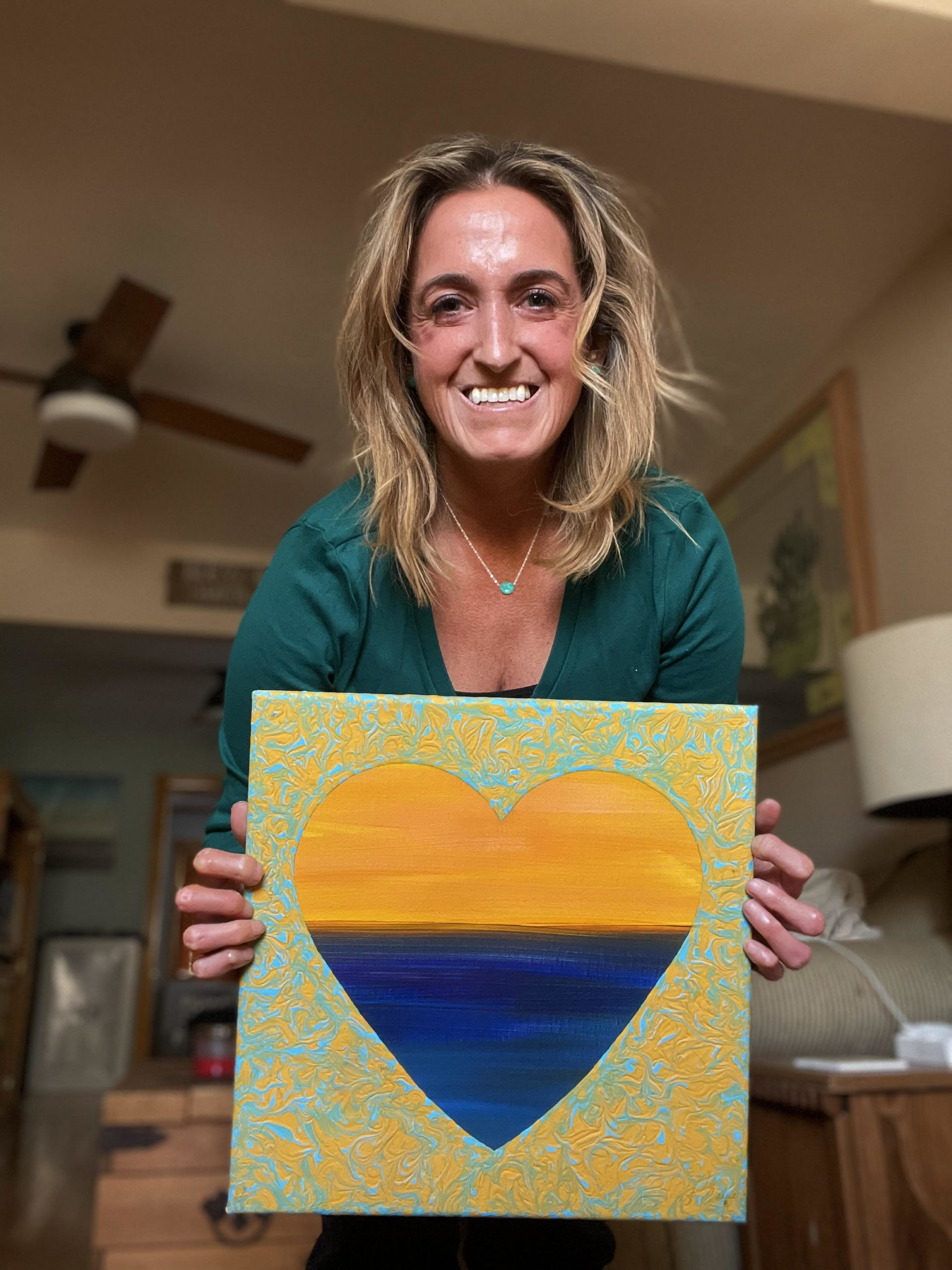
Have your daily walks and stair-climbing helped you manage symptoms?
Absolutely! There’s a quote, “A body in action is more flexible.” I used to be kind of a couch potato. When you work, you come home and you just sit down. But I’ve noticed that movement keeps my energy a little bit higher than normal and also keeps me more mobile and my skin more flexible. So yeah, absolutely moving helps.
Don’t get me wrong, there are days that I won’t even move out of bed. You listen to your body, and you stop. For the most part though, those are the things I do to keep myself going.
My son was young for the majority of my early diagnosis, so he kept me on the move when I needed it. I got involved with boy scouting because he was a boy scout. I would do events with him – camping and so on. I think having a child actually kept me mobile; maybe that’s why I think it’s not so much of a struggle for me to continue walking and moving.
What is your mindset when approaching new things?
I still jump into things if I know that I can manage them. Physical things I think about a lot because, of course, you need your hands a lot for some physical things, and mine don’t work properly. So I pick and choose. I know what I’m capable of doing and what I’m not.
Sometimes, I wish I could do everything and be a healthy person – but I accept it. Having scleroderma is life-changing. I know in my mindset that I can’t do everything a healthy person can, but it doesn’t stop me from doing things. I am still extremely involved and do a lot of things. I still even clean the bathroom! My husband does most of the housework, but I’m still able to do a lot on my own. Not as much as I’d like, and I have to space out what I do in order to have the energy for it, but I’m willing to try anything at all.
The diagnosis of scleroderma didn’t make me stop living. Although life is different, it’s still a life I love and appreciate, and I’m grateful to still be alive. We have to relish in the good days. Even if you’re having a bad day, you say, “Okay. I survived every bad day in the past, I’m going to survive this day too. I just hope tomorrow will be a better day.” I try not to dwell too much in the pity party. Those days of pity partying are over. You need to take action in your own life. If you want to be happy, you’re going to find a way to be happy. If you’re going to stay miserable and feel horrible every single day, you’re never going to get better. It’ll destroy your spirit, your health, your relationships. That’s my thought on it.
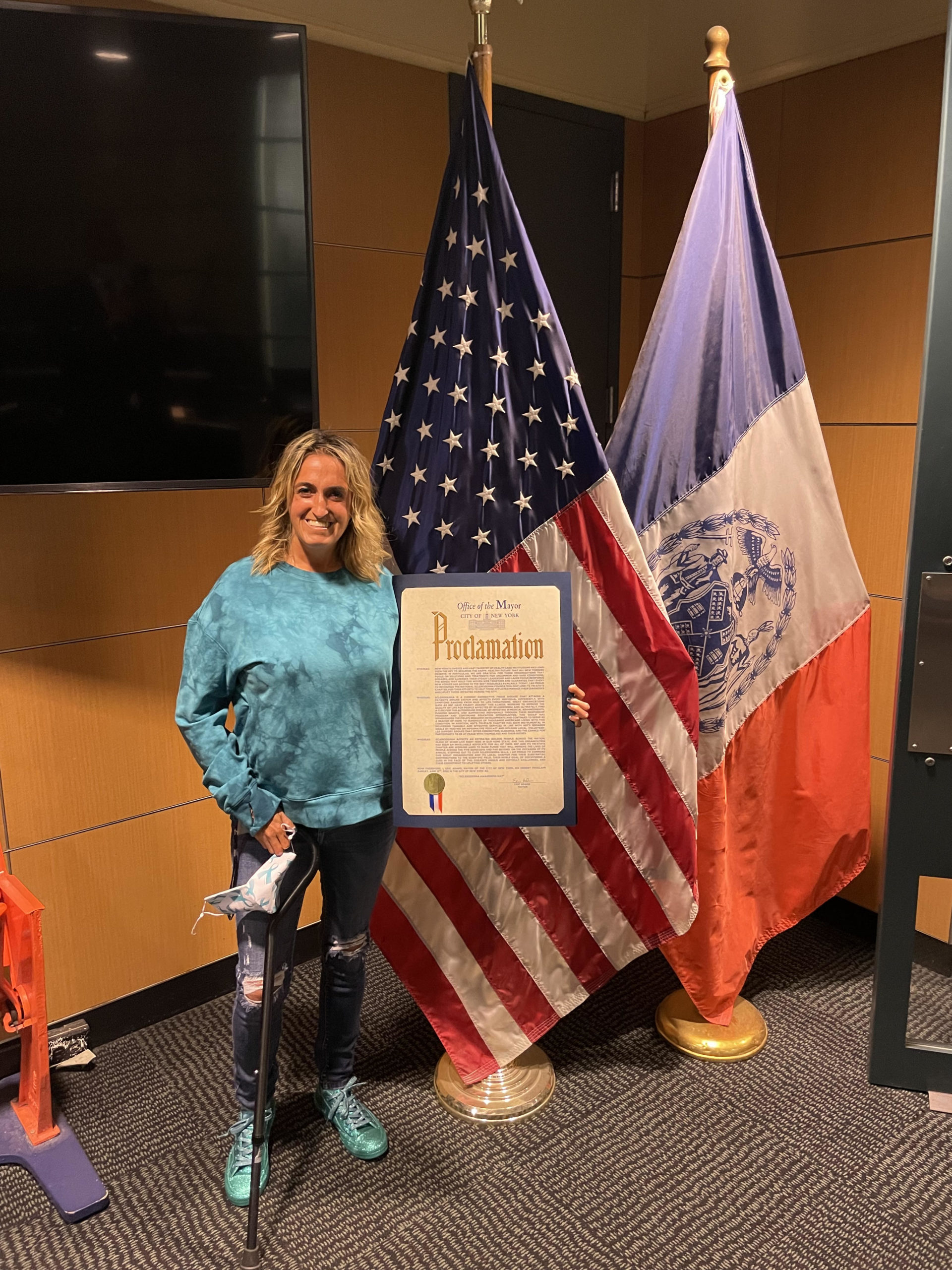
What’s something you’ve learned over the years that you wish you had known when you were diagnosed?
At the beginning of my diagnosis, I wish I knew more about the organizations out there. That probably could have helped a little bit on my journey. But some of the advice I have is: Don’t give up hope. Listen to your body. Don’t focus on what you can’t do, but what you can do. And always be kind to yourself.
My biggest thing is to be your own advocate, whether it’s within the medical field, in raising awareness, or anything. Our community is small compared to other chronic illnesses, so you need to be your own voice. You need to get out there and say what’s bothering you and what you need, because it won’t be handed to you.
Because scleroderma is unique in every patient, you know your body the best. Don’t stay quiet. If you see something out of the ordinary, discuss it with your doctors. Call your doctors, and reach out to your community whether it be privately or in a group setting. Ask questions because there are a lot of us who’ve been on this journey a long time. We may not have the answer for you, but we might know somebody who will have an answer to guide you properly.
At first, I think people don’t want to accept their disease, and they have a hard time. Even though there is more knowledge now than there was years ago, it’s still a scary experience. I hid for 7 or 8 years after my diagnosis, and then I finally accepted it. You truly can’t go on with a chronic illness until you really accept it. Once I accepted it, I stopped feeling sorry for myself. I said, “Okay. Now I’m going to go out there, and I’m going to start helping people,” because nobody really helped me with my journey, maybe because I didn’t really get involved. I don’t want people to go through what I went through – feeling very alone, very angry, and giving up hope. I don’t want people to feel like that. Once I accepted the disease, it changed my life.
Having scleroderma is not necessarily a death sentence. There are ways of treating our issues in association with the disease, and treatment can halt the disease. Like I said, they told me I had nine years to live, and I’m here years later.
So don’t listen to that. Don’t get yourself sick like I did when I was first diagnosed: “What do you mean I’ll live nine years? I’m not going to see my son graduate high school or go to college? I’m not going to be a grandma?” I got myself sick for nothing. I don’t want others to feel like that.
And when somebody tells you that you don’t look sick, that is your opportunity to share your story and tell them what scleroderma is doing to you and your body.
I can say I would trade scleroderma for every wrinkle in the world, but you know what friends of mine say to me? “Oh, my God, I’m so jealous. You have no wrinkles. You don’t look 53, blah, blah, blah.” And I say to them: “My skin could sag to my ankles and I’d be happier, because living with chronic pain every day is not fun.”
What are your goals and dreams for the future?
One of my big goals is to spend quality time, at least 24 hours, with scleroderma patients in every US state. Another goal is to continue to advocate and raise awareness. I would like every state and every region internationally to know what scleroderma is. I want to turn all these regions teal (teal is the color representing scleroderma). And maybe one day, I’d meet with some radio or media to do a commercial to get more funds and grants, raise awareness, and do advocacy to hopefully find a cure in my lifetime.
Even though I don’t have a paid job, I’m going to continue volunteering to help others. I think I was meant to get scleroderma to stop that hustle and bustle of New York City life and soften up because, since my diagnosis, I’m a more compassionate person. I’ve slowed down, and I make sure to breathe and find self-care, to make every minute that I’m here have purpose.
What kinds of advocacy work are you involved in?
I’m very involved in organizations within the United States. I actually was the National Scleroderma Foundation’s Advocate of the Year in 2022. New York City had no backing, and I was able to get support from the Mayor of New York City and my local Senator. The Helmsley Building and Pier 17 were lit teal to acknowledge scleroderma awareness.
This year, I was named National Volunteer of the Year and also received the first Jacob Davila Leadership Memorial Scholarship. Jacob was one of my mentors. I learned so much from him.
I’m very involved in federal advocacy with my Congressman and local politicians to gain support for bills and grants. Currently, I’m working on the Department of Defense bill, which is a $5M grant to go towards scleroderma medical research. So basically, if there’s any way to bring knowledge of the disease or to help our community in any way, I’m there for it. In addition, I also advocate for medication to be approved. One day, I hope I can actually go to congress and tell my story about the lack of approval of medications, especially biologics, that help our disease, and be one of the people who make a difference to get it approved.
Anything you’d like to share?
I want to tell my community to keep up the fight. Being a part of several groups on Facebook and Instagram, as well as signing up to be with every organization that supports the scleroderma community can help your journey.
Through these networks, you can learn a lot and meet people which could be life-saving and life-changing.
Be sure to follow us on Instagram and Facebook (@sclerounited) to see more scleroderma warriors’ journeys in our weekly Sclero Sunday series.
Are you a scleroderma warrior? We’d love to interview you for Scleroderma Stories! Please visit tinyurl.com/share-my-sclero-story or email us at contact@sclerounited.us
